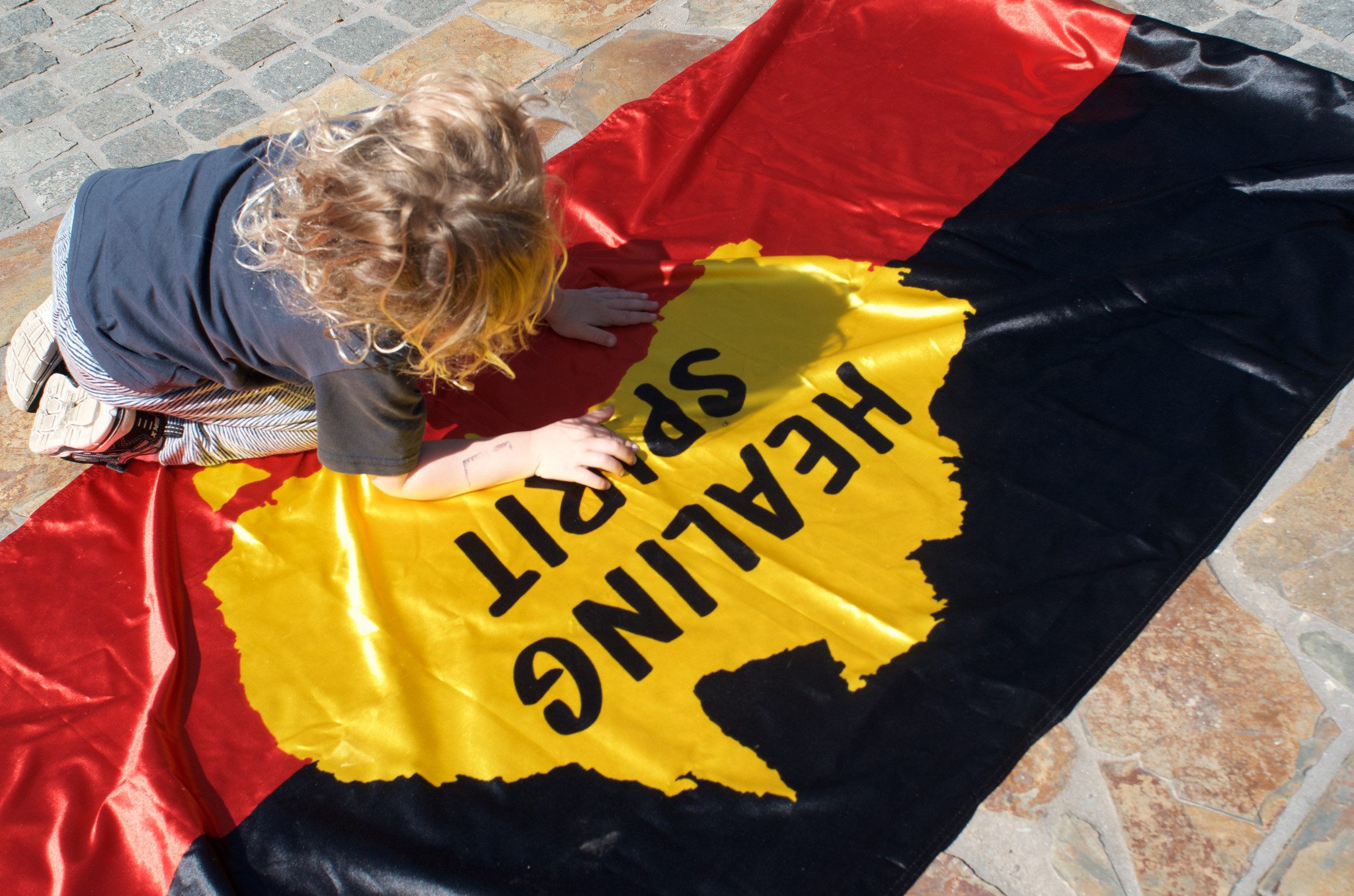Aboriginal and Torres Strait Islander Peoples Cultures and Histories
Welcome to the Aboriginal and Torres Strait Islander Cultures and Histories resource page. We at Oxfam are committed to empowering First Nations peoples and we believe self-determination is the first step towards a reconciled Australia.
We believe reconciliation begins with you, the commitment you make and the relationships you build between your school and local Elders or Traditional Custodians. These free educational resources have been curated as an opportunity to prioritise Aboriginal and Torres Strait Islander Histories and Cultures across the Australian curriculum and to engage students in meaningful understandings of reconciliation, respect and recognition of the world’s oldest living cultures. For Aboriginal and Torres Strait Islander students this is an opportunity to see themselves, their identities and cultures reflected respectfully within their classroom.
Access our educational resources below.
Narragunnawali

Narragunnawali is a branch of Reconciliation Australia that focuses exclusively on educational resources.
We have partnered with Narragunnawali, who house over 200 educational resources on their website from Early Learning to Secondary school. These resources guide students and teachers through an in depth and meaningful attempt at understanding past injustices through strengthening students’ knowledge and understanding of the relevance of past injustices, contemporary issues and Aboriginal and Torres Strait Islander cultures and contributions.
A Reconciliation Action Plan (RAP) is a formal statement of commitment to reconciliation. Students and teachers will be taken on a yearlong journey of learning, understanding and meaningful relationship building. This year long commitment will give you access to lesson plans including learning outcomes, inquiry questions, proposed activities as well as direct curriculum links.
Students will deepen their knowledge of contemporary and historical Australia through engaging and relationship building with local Traditional Owners and Traditional Custodians. Students will not only attempt to understand contextual Aboriginal and Torres Strait Islander communities but also understand that identities and culture are a source of strength and resilience for Aboriginal and Torres Strait Islander peoples against the historical and contemporary effects of colonisation. Narragunnawali is a one person sign up, you can start as big or as small as you would like! We recommend beginning by watching the Webinars that take you through how to use the Narragunnawali website. From there, you can sign your school up to commit to a working RAP.
Black Mist Burnt Country

Black Mist Burnt Country introduces secondary school students to the secret nuclear testing programme conducted by the British government in Australia, between 1952 and 1963.
Produced by Burrinja and developed by the History Teachers Association of Victoria for the award-winning national touring exhibition Black Mist Burnt Country. The resource provides stimulus for discussions on land rights, civil rights, environmental disasters, World War II, the Cold War and the nuclear arms race.
Placing exhibition artworks in their historical and political context, the resource explores the impact of the nuclear testing on the Maralinga Indigenous communities encourages students to examine themes of loss of access to sacred land, short and long-term health issues and the contamination of natural resources. Students complete a range of activities to engage them with a diversity of art styles and examine the connections of each work to important historical moments and movements.
VISIT FREE RESOURCE VISIT EXHIBITION HIGHLIGHTS
Close the Gap

Aboriginal and Torres Strait Islander Peoples are dying 10–17 years younger than other Australians. Think about that ― a non-Indigenous child who started primary school this year may outlive an Indigenous student completing Year 12. Your school can do something to help change this.
National Close the Gap Day will take place on 21 March, 2019
Join the hundreds of thousands of students and teachers across Australia who are standing for health equality by holding a National Close the Gap day activity!
